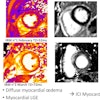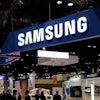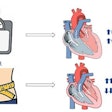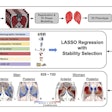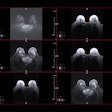
VIENNA (Reuters), May 11 - A growing unwillingness of shippers to deliver radioactive medical materials due to rising costs and safety fears since the September 11 attacks is threatening healthcare in some countries, experts said on Wednesday.
One European state is now refusing air shipments of medical isotopes with a shelf life of 24 hours, they said. Elsewhere, these supplies may travel three times the direct distance between countries because of detours imposed by shippers who have pulled out to escape climbing regulatory costs.
In one case, a supplier needed six months to hire transport for a radioactive medication, typically used in diagnosis and treatment -- for especially for cancer, between two European states.
What the experts called "a critical need to resolve refusals of some shippers" to deliver nuclear medical aids, especially by sea, is the topic of a conference this week at the International Atomic Energy Agency headquarters in Vienna.
"We need to deal with this problem before we reach the point of patients dying because of it," said Jim Stewart, radiological transport adviser in the British government.
"(We can get about) 100 reports of denied shipment in three months and that's not a comprehensive picture. We've only started dealing with this issue. Something dramatic needs to be done. The problem is getting worse," he told a news briefing.
Industry experts could not say whether any patients had died because radioactive medical aids arrived too late or not at all. They declined to name countries at issue or give examples of patients affected by delays, citing reasons of confidentiality.
They also said none of the known hold-ups resulted from security alerts of possible diversions of isotopes into making nuclear "dirty bombs,"saying the industry had an exemplary transport safety record for four decades.
Medical care at stake
But they suggested it was only a matter of time before delivery delays invited medical crises in some countries, especially in the Mediterranean and Asia-Pacific regions.
"Delays predate September 11 but may have been exacerbated by it. These products have a short shelf life so transport has to operate like clockwork (to benefit patients)," said Paul Gray of Canadian medical isotope producer MDS Nordion.
"There is no short-term solution in sight," said Michael Wangler, an IAEA transport safety official. But he said the IAEA had begun a database to assess the breadth of delays and would offer training to shippers to spur them to take on deliveries.
Gray said tens of thousands of radioactive medication shipments are made yearly for 70-80 million cases of treatment.
Worst affected by holdups has been cobalt-60, a nuclear isotope used to sterilize half the world's medical products such as gloves, gowns, sutures, and catheters.
The problem is compounded by the small number of medical isotope producers worldwide -- half a dozen for radiological cancer aids, and just two producers of cobalt-60, Gray said.
David Brennan, a senior official on dangerous goods and safety issues at the International Air Transport Association, representing 260 airlines, said heightened security concerns since September 11 had magnified isotope transport costs.
By Mark Heinrich
Last Updated: 2006-05-10 16:33:57 -0400 (Reuters Health)
Related Reading
Nuclear medicine agents can set off radiation detectors, November 30, 2004
"Dirty bomb" fears hurt medical isotope transit, UN says, September 3, 2004
Copyright © 2006 Reuters Limited. All rights reserved. Republication or redistribution of Reuters content, including by framing or similar means, is expressly prohibited without the prior written consent of Reuters. Reuters shall not be liable for any errors or delays in the content, or for any actions taken in reliance thereon. Reuters and the Reuters sphere logo are registered trademarks and trademarks of the Reuters group of companies around the world.

